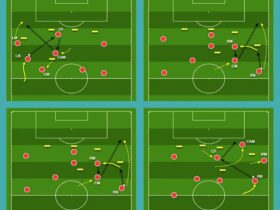Detention at Louisville distribution docks remains a significant pain point for carriers and shippers alike, impacting operational efficiency and trucking KPIs. As a major logistics hub, Louisville experiences high volumes of freight traffic, where delays in unloading and loading trucks often translate into costly detention fees. These detention challenges not only erode time savings but also affect carrier scorecards, influencing future business relationships.
At the heart of these delays are factors such as inefficient yard management, outdated gate pass procedures, and the complexities involved in live load versus drop-and-hook operations. Distribution centers struggling with congestion and poor scheduling exacerbate the problem, causing trucks to idle longer than necessary. Understanding these challenges is crucial for logistics managers aiming to streamline dock operations and reduce detention time.
By addressing the root causes of detention in Louisville, companies can unlock substantial time savings, optimize yard throughput, and improve overall carrier satisfaction. This article explores practical strategies that distribution centers can implement to mitigate detention issues and elevate their logistic performance in this vital region.
2. Impact of detention Louisville on operational efficiency and costs
Detention at Louisville distribution docks directly undermines operational efficiency and inflates costs across the supply chain. Prolonged wait times for loading or unloading trucks cause bottlenecks in yard management, reducing dock throughput and delaying subsequent shipments. These inefficiencies diminish trucking KPIs such as on-time performance and average dwell time, essential metrics that carriers monitor closely.
Moreover, detention Louisville frequently triggers costly detention fees, which penalize carriers for extended idling. These fees strain relationships between shippers and carriers, as poor carrier scores can limit future collaboration opportunities. Ineffective gate pass procedures and lack of streamlined drop-and-hook or live load options exacerbate these delays, further driving expenses and reducing time savings.
By addressing detention challenges, distribution centers can significantly cut operating costs, improve carrier scorecards, and enhance overall dock productivity — creating a more agile, cost-effective logistics network in the Louisville region.
3. Leveraging dock-scheduling apps for optimized gate pass management
Implementing dock-scheduling apps revolutionizes gate pass management at Louisville distribution docks, offering a proactive solution to detention Louisville. These digital tools enable precise appointment scheduling, reducing congestion and minimizing dwell times. By automating gate pass issuance, distribution centers streamline yard management, drastically cutting truck idle times and improving live load and drop-and-hook efficiency.
Dock-scheduling apps provide real-time visibility into arrival windows and gate availability, empowering logistics teams to better coordinate carrier arrivals and unloading slots. This optimization leads to significant time savings, directly enhancing trucking KPIs such as on-time performance and detention fee reduction. Additionally, an organized gate pass system improves carrier scores by reducing unpredictable delays and fostering stronger shipper-carrier relationships.
Incorporating dock-scheduling technology is a strategic move to transform Louisville’s distribution docks from bottlenecks into well-oiled hubs, ultimately boosting throughput and operational excellence. If you’re ready to be part of this transformation in the dry van sector,take the first step.
4. Implementing drop trailers and drop-and-hook strategies for time savings
To reduce detention Louisville and enhance distribution dock efficiency, adopting drop trailer and drop-and-hook strategies is essential. Key benefits include:
- Minimized waiting times: Drivers drop trailers and immediately hook up to a preloaded unit, slashing idle periods and boosting yard management flow.
- Improved scheduling flexibility: Enables carriers to bypass lengthy gate pass procedures and reduce bottlenecks during peak hours.
- Enhanced trucking KPIs: Faster turnarounds increase on-time performance and decrease detention fees, positively impacting carrier scores.
- Streamlined live load operations: Reduces dependency on synchronized dock availability, allowing simultaneous trailer exchanges.
- Increased dock throughput: More trailers moved daily with less congestion, driving overall operational excellence.
By integrating drop-and-hook methods, Louisville distribution centers unlock significant time savings, elevating service levels and forging stronger shipper-carrier partnerships.
5. Utilizing KPI scorecards to monitor trucking KPI and carrier score
Effectively managing detention Louisville requires continuous monitoring through KPI scorecards that track key metrics impacting distribution dock performance. To leverage scorecards for maximum time savings:
- Track detention fee occurrences: Identify patterns and specific carriers or docks causing excessive detention, targeting improvements where most needed.
- Monitor yard management efficiency: Use metrics like average dwell time and gate pass processing speed to pinpoint bottlenecks.
- Measure on-time performance: Assess how drop-and-hook and live load strategies influence trucking KPIs, adjusting tactics based on data insights.
- Evaluate carrier scores: Correlate detention times with carrier ratings to foster accountability and promote reliable partnerships.
- Implement regular reviews: Share scorecard results with carriers and internal teams to collaboratively reduce detention and enhance dock throughput.
Integrating KPI scorecards into daily operations empowers Louisville distribution centers to make data-driven decisions, optimize yard flow, and significantly reduce costly detention, thereby improving overall supply chain efficiency.
6. Integrating Yard Mgmt systems to reduce detention fees and improve live load processes
Integrating advanced Yard Mgmt systems at Louisville distribution docks is pivotal for reducing detention Louisville and achieving substantial time savings. These systems enhance real-time visibility and control over truck movements, gate pass issuance, and dock assignments, streamlining live load operations. By automating yard workflows, distribution centers can minimize truck idle times, decrease detention fees, and improve overall yard throughput.
Seamless integration with dock scheduling and drop-and-hook protocols optimizes carrier score by enabling faster turnarounds and reducing bottlenecks. Leveraging Yard Mgmt technology empowers logistics teams to proactively manage congestion, elevate trucking KPI performance, and foster stronger shipper-carrier partnerships through efficient, data-driven processes.
7. Case study: Achieving 35% reduction in idle times at Louisville distribution centers
A leading Louisville distribution center implemented an integrated Yard Mgmt system combined with dock-scheduling apps and drop-and-hook strategies, targeting detention Louisville head-on. By streamlining gate pass procedures and automating yard workflows, they achieved a 35% reduction in truck idle times. This time savings directly improved trucking KPIs such as on-time performance and average dwell time, while significantly lowering detention fees. Enhanced live load coordination and real-time visibility empowered operations teams to optimize dock assignments and reduce bottlenecks. Carrier scores improved due to faster turnarounds and fewer delays, strengthening shipper-carrier relationships. This case highlights how leveraging technology and process innovation at Louisville distribution docks can deliver measurable efficiency gains and cost reductions.
8. Conclusion: Driving continuous improvement in detention management
Reducing detention times at Louisville distribution centers requires a strategic, data-driven approach combining operational efficiency, technology integration, and strong stakeholder collaboration. By analyzing root causes — from scheduling inefficiencies to communication gaps — centers can implement targeted solutions like real-time tracking, automated appointment systems, and driver training programs. Emphasizing continuous improvement through performance metrics and feedback loops ensures sustained progress. Moreover, fostering partnerships between carriers, warehouse operators, and management creates a culture of accountability and transparency. Ultimately, by prioritizing these best practices, Louisville distribution centers can minimize detention delays, reduce costs, enhance carrier satisfaction, and boost overall supply chain agility — positioning themselves as industry leaders in detention management excellence.
FAQ
FAQ: Reducing Detention Times at Louisville Distribution Centers
- 1. What are detention times, and why are they important to reduce at Louisville distribution centers?
Detention times refer to the period trucks are delayed at the distribution center beyond the agreed free time. Reducing these times is crucial to improve supply chain efficiency, lower operational costs, and enhance overall productivity.
- 2. What strategies can help minimize detention times at Louisville distribution centers?
Effective strategies include optimizing scheduling, implementing real-time tracking systems, improving communication between carriers and distribution centers, and streamlining loading and unloading processes.
- 3. How does technology impact detention times at distribution centers?
Technology such as automated scheduling software, RFID tracking, and digital communication platforms can significantly reduce detention times by improving coordination, reducing wait times, and enabling faster turnaround.
- 4. What role do carriers and drivers play in reducing detention times?
Carriers and drivers can help by adhering to scheduled appointment times, providing accurate arrival notifications, and cooperating with distribution center procedures to ensure quick loading and unloading.
- 5. Are there any penalties or incentives related to detention times at Louisville distribution centers?
Many distribution centers enforce detention fees if trucks exceed allowed free time, encouraging timely operations. Conversely, some offer incentives for early arrivals and efficient loading/unloading to promote faster turnaround.








Leave a Reply